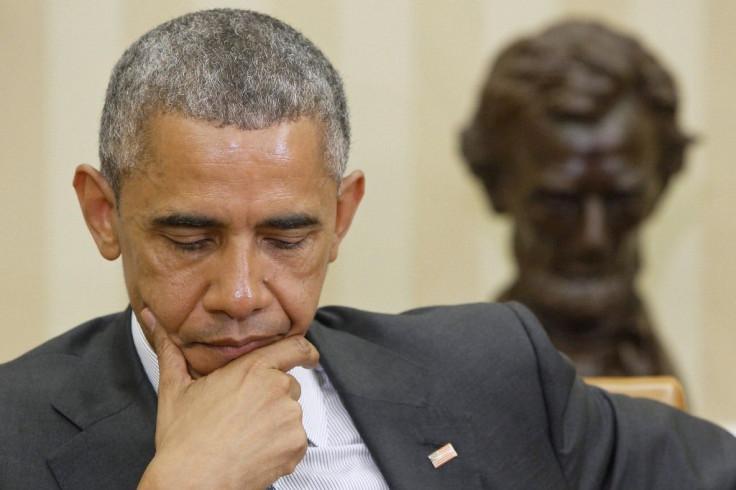Blame It On Obama: US President Wants To Be Held Responsible If Iran Poses Nuclear Threat In Future

U.S. President Barack Obama dismissed media reports that Saudi Arabia would opt for nuclear power if Iran did so. He said that there was no indication that other Persian Gulf nations wanted to pursue their own nuclear programs.
Obama said that a probable reason behind Gulf nations not opting for nuclear power is that U.S. protection was a “far greater deterrent” than their own nuclear capacity. The U.S. president added that Saudi Arabia among other Gulf nations appeared satisfied. The Saudis seem convinced that a deal between the U.S. and Iran would prevent Iran from posing a nuclear threat to the region, he added.
Obama said that he had a personal interest in finalizing a nuclear agreement with Iran. “Look, 20 years from now, I’m still going to be around, God willing,” Obama told the Atlantic. “If Iran has a nuclear weapon, it’s my name on this.”
Obama also talked about the loss of Ramadi, Iraq, to fighters from the Islamic State group. He dismissed the notion that the U.S. military was losing against Islamic State group forces. He admitted, however, that the U.S.-led coalition had suffered a “tactical setback” in Ramadi.
The president said Ramadi had been vulnerable for a very long time. He blamed the situation there on a lack of U.S.-trained Iraqi security forces. He added that improvements in training were not happening fast enough in the Sunni parts of Iraq.
Obama said there was an important lesson to learn from U.S. involvement in Iraq. According to Obama, Iraqi people are either not capable or not willing to reach the “political accommodations” needed for governing the country. Obama added that Americans would not be able to fight for Iraq’s security if Iraqis were not willing to do it for themselves. The Atlantic interview conducted Tuesday was released Thursday.
Some U.S. officials have tried to portray that the defeat in Ramadi as not very important because the city has been partially held by the Islamic State group for the past 18 months. However, Financial Times reported that Ramadi had left “a hole” in the confidence of the United States. Amman, Jordan, publisher Kirk Sowell wondered what difference 300 U.S. trainers could make to a “hollow” Iraqi division.
© Copyright IBTimes 2024. All rights reserved.











